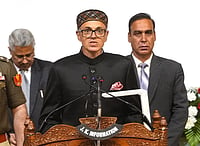A few years back, while heading to a TV studio in Islamabad to participate in a programme, I heard a big blast. I called up the producer so that the channel could send a team to cover the blast. Instead, he told me to go straight to the site and provide live coverage for the channel using my cellphone till reporters and OB vans could reach there. The recording of my programme, he reasoned, could wait.
The Axact Reaction
Why does it take the NYT to break a Pakistani scam?

Excited at the opportunity to be a reporter, I started looking for the blast site and finally found it near Jinnah Super, the main market of Islamabad. Luckily, the explosion had not taken place in the crowded market, but at one end of a road leading to it. But I could not reach the spot: there was intense gunfire and bullets were landing close to my feet. As it turned out, a suicide bomber had blown himself up near the entrance to the Frontier Constabulary camp at the intersection of Margalla Road and Kohsar Road. The jawans at the camp, enraged, were firing into the air. It continued for more than half an hour.
Nowadays, it’s slightly different. Every time armed forces personnel or their facilities are targeted by terrorists, the air force goes out within hours and bombs tribal areas close to the Afghanistan border. We are told dozens of hardcore terrorists have been killed. We are left wondering why these terrorists could not have been pinpointed and killed earlier! A similar ‘reaction-ism’ surrounds the Axact affair—involving a Karachi-based firm that claims to be Pakistan’s biggest software exporter. On May 17, the New York Times carried a lead story by Declan Walsh that Axact operated a complex network of educational institutions that existed only as websites and made piles offering fake degrees worldwide. The electronic media went berserk—for the obvious reason that Axact is about to launch Bol, a TV channel which has attracted prominent anchors. Mercifully, the print media gave it less coverage, but nevertheless, it was front-page news.
Then came a flurry of activity. The interior minister immediately ordered the Federal Investigation Agency (FIA) to inquire into the matter. Axact offices were raided, the CEO and perhaps some employees were arrested, computers and other equipment was seized. The Securities Excchange Commission of Pakistan issued a showcause notice to the company. The Federal Bureau of Revenue (FBR), which has been unable to discover more than two million taxpayers in a nation of 180 million, started probing Axact for tax evasion. About the Twitter storms, the less said the better.
But where was everyone all this time? What happened to the investigative skills of our reporters, many of whom are being paid huge salaries? What on earth were the folks in our intelligence agencies, the FIA and the FBR doing all along? Do we need a Declan Walsh every time to wake us from our slumber? It might be noted that, a few years back, Walsh was summarily ordered out of Pakistan for filing a report about the tribal areas. Since then, he has been refused a visa to enter Pakistan.
The fact is, in Pakistan, no one is doing his job. It is not that everyone is corrupt. It is more a case of lack of competence. Most people are not interested in doing the work their position requires. And there are many who perhaps want to work but lack the competence. This applies, regrettably, from the top to the bottom and across all institutions of Pakistan, a frightening situation indeed.
In the midst of it all, the nation has discovered the electronic media, something that has been around since the introduction of the liberalisation of 2001. Pakistan has now more than 50 news channels. But they hardly ever conduct investigative reporting; on the other hand, they have specialised in outdoing each other in the coverage, with music blaring, of terrorist attacks. Tired of one channel, you switch to another—only to be assailed with greater intensity.
Our politicians are more than willing to appear on these channels and give the impression that their job is simply to remain visible on TV rather than to serve the people. Many of these politicians aren’t even elected figures. Then there’s a band of retired bureaucrats and military personnel sermonising on the very things they were opposed to when in service. The anchors are keen to retain their jobs and willing to do whatever is demanded of them by the management.
This is not just hopeless but also very scary. The nation needs a Lee Kuan Yew to get out of this mess—but, at the moment, there’s no such leader in sight.
(The writer is an advocate at the Supreme Court of Pakistan.)





















